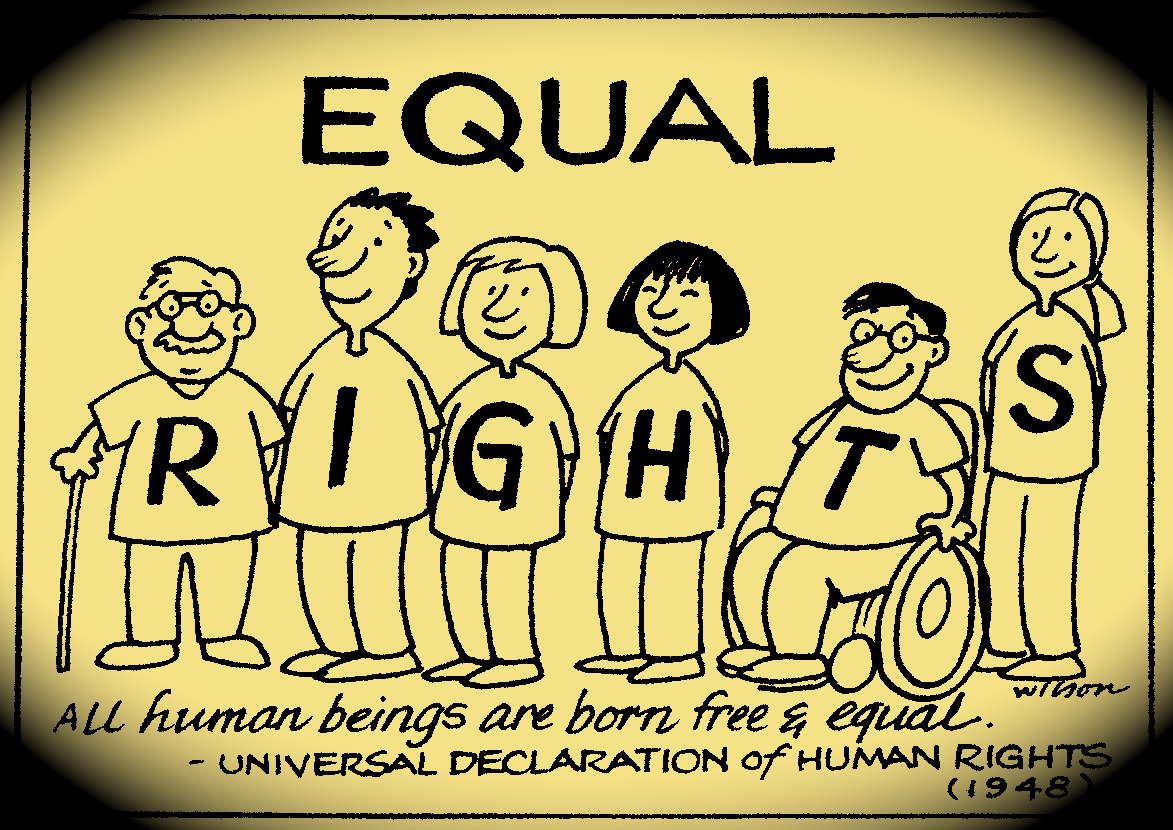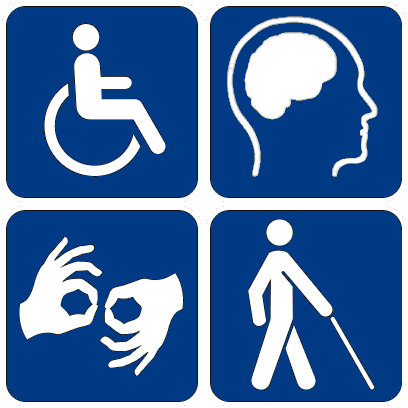This article is written by Anushka Singhal of Symbiosis Law School, Noida. In this article, she discusses the legal guardianship and custody of adults with mental disabilities.
Table of Contents
Introduction
‘Mental disability’ is defined as the inability to learn things at the rate at which a normal human being is expected to learn them. With the advancement in technology, mental health issues have become more acceptable today. Erstwhile mental disabilities were regarded as ‘madness’ and are now being treated as ‘mental illness’. The world recognizes the problem of such people and thus to lend a helping hand to them, we have made certain guardianship rules. In this article, we will discuss the guardianship laws particularly concerning mentally disabled adults in India and abroad. In India, we have a separate law called the National Trust Act, 1999 which provides provisions for the welfare of mentally disabled people, and other countries like the US, China, etc. have similar laws.
Legal guardianship
Legal Guardianship is a concept in which the court appoints a legal guardian i.e. a person who takes care of a minor and his property until the minor acquires the age of majority. According to the Indian Majority Act, 1875, the age of majority for a minor with a legally appointed guardian is 21 years. The court appoints a guardian not only for a minor but also for the people who are not able to take care of themselves, like mentally or physically disabled persons.
The Indian Contract Act, 1872, under Section 11, lays down the conditions for the competency of parties to enter into a contract. According to this Section, minors and persons of unsound mind are considered incompetent to enter into a contract. Therefore to enable such persons to enter into a contract and to ensure their paramount interest, we have the concept of legal guardianship. For people with cerebral palsy, autism, and other disorders, the law provides for a provision for the appointment of a guardian who will take all their legal decisions. This guardianship may not be absolute, i.e. if a mentally disabled person can exercise some control over himself, then the law provides a partial guardian to such a person.
In India, the personal laws of Hindus and Muslims, the Guardians and Wards act 1890, and the National Trust Act lays down the provisions of legal guardianship. The National Trust Act especially deals with the guardianship of mentally disabled people and we also have the Right of Persons with Disabilities Act, 2016.
Concept of guardianship
The provisions for guardianship for a mentally disabled person are laid down under Section 14 of the National Trust Act. According to this Section, a local level committee is empowered to appoint a guardian for mentally disabled persons. A legal guardianship application has to be filed with the district collector and then the district collector, if satisfied with the application, will appoint the legal guardian. The application of legal guardianship can be filed offline with the local committee or it can also be filed online via the official website. Following persons can apply for the guardianship-
- A parent or relative of the disabled person.
- Any registered organization with the consent of the guardian
- Also while granting the guardianship, the local committee has to keep two things in mind-
- Whether the mentally retarded person needs a guardian.
- The purpose for which the guardianship is sought.
After being satisfied, the local committee processes the application.
Voluntary
Section 14 of the National Trust Act says that a parent, relative, or organization can voluntarily apply for guardianship with the local committee established under the same act. The guardian appointed under this provision has to take care of the mentally retarded person as well as his property. The relative under chapter VI of the National Trust will include any person related to the disabled person by blood, marriage, or adoption.
Involuntary
The Rights of Person with Disabilities Act 2016 lays down the provisions for involuntary guardianship. Under Section 13 of the said Actfulfils, if the district collector feels that a mentally disabled person is not able to take care of himself, then he can appoint a legal guardian for that person. The guardian appointed under this section may be given plenary guardianship i.e. full authority over the decisions of such a person, or limited guardianship i.e. both the guardian and the mentally ill person would take all the decisions with mutual consent.
Guardianship under the National Trust Act, 1999
As stated above, the National Trust Act, or to be precise, the ‘National Trust for the Welfare of Persons with Autism, Cerebral Palsy, Mental Retardation and Multiple Disabilities’ looks after the guardianship of people with cerebral palsy, autism, and other mental incapabilities. A local committee would decide on the same, once an application is filed under Section 14. Now let us try to understand what this local committee is and who are the members of it. Section 13 of the committee provides-
- A local committee should consist of an officer not below the rank of a district magistrate of a district.
- A representative from a recognized organization
- A person with a disability as defined under relevant provisions of the law.
Duties of a guardian
The duties of a guardian have been laid down under Section 16 of the National Trusts Act. After the grant of guardianship under the National Trust Act, a guardian thus appointed must inform the concerned authorities about all the movable and immovable properties, debts, assets, and liabilities of such mentally ill person for whom he has been appointed, within six months. He shall also have a duty to tell the authorities about all the financial transactions of that person before every financial year, within three years.
Who may qualify to be a guardian
The qualifications to be appointed as a guardian are given under the National Trusts Act. Regulations 11 and 12 of the given act talk of such qualifications.
Section 11 of Regulations
According to these regulations, the following persons can apply for guardianship of a mentally disabled adult-
- Either or both parents may apply for guardianship or in the event of the absence of one due to death, divorce, legal separation, desertion or conviction, a spouse may singly apply for guardianship e.
- The siblings may adopt their mentally ill sibling in case their parents have died.
- The relatives may apply for adoption in the absence of both parents and siblings.
- An organization working for the welfare of such people may file an application for the same in the absence of parents and siblings.
- If the person is destitute or abandoned, the local level committee may direct a welfare organization to become the guardian of such an adult.
Section 12 of Regulations
It lays down the qualifications of an applicant i.e the person who is applying for the guardianship of the disabled person.
- Both the parents or a single parent in the absence of the other may apply and their application will always be selected, unless-
A. They are no longer Indian citizens
B. They are of unsound mind
C. They are convicts
D. They are destitute
- The applicant can name the relatives, siblings, or any institution as his/her guardian.
In case an institution is appointed as a guardian, the institution should be registered under appropriate laws and if later the institution is found to be incompetent, the local committee can make alternative arrangements for the time being. Also, the applicant should be living in the vicinity of the disabled person and lastly, no single male member is entitled to get guardianship of a female disabled person except the father of the child. The male person shall be given co-guardianship with his spouse, who shall be master co- guardian.
Application process
An application form needs to be received from the local level committee or it can be downloaded from the official website. Any person who is eligible to be a guardian and fulfills the requirements of Regulations 11 and 12 can file an application. In case an organization or some other person apart from the parents is applying for guardianship, he must submit the consent of the parents. After applying with all the relevant documents, the application process is deemed to be completed.
Guidelines for receiving and confirmation
Regulation 13 of the National Trust regulation provides the procedure for receiving and confirming an application for guardianship. As provided in the National Trust Act, a local level committee (LLC) is designated to grant guardianship. Upon receiving the application, the committee should scrutinize the application carefully and should see whether the prospective guardian would be suitable for the mentally ill person or not. The committee would counsel the parents if they are looking for an organization or some other person as a guardian for them and would make sure that the parents have genuine reasons for giving the person up for guardianship. Also, the need for a guardian would be assessed properly and only guardianship would be provided in those cases where the adult is completely unable to make independent decisions. Partial guardianships may be provided when required. After the LLC is satisfied, it confirms the application and the confirmation is sent by letter or firm both online and offline.
Removing a guardian
A guardian can be removed via Section 17 of the National Trust Act. A person who is appointed as the guardian of a mentally disabled person can be removed if –
- He is abusing that person.
- He is neglecting that person.
- He is misappropriating that person’s property.
- He is neglecting that person’s property.
The mentally retarded person’s relatives, parents, or an organization on finding either of the above-mentioned points can apply in the local committee for the removal of the guardian. If the local committee is satisfied with the allegations, it can remove the guardian so appointed and would appoint some other person or if no one is available then the committee would take any other measures in the interest of the mentally disabled person.
The terms ‘abuse’ and ‘neglect’ have been elaborately defined, and they include-
- Solitary confinement
- Chaining
- Sexual Abuse
- Beating or treating badly
- Depriving the person of his basic needs like water, clothes, and food.
- Not working towards rehabilitation of that person
Voluntary
A voluntary guardian can be easily removed via the above-given rules- i.e following Section 17 of the National Trust Act.
Involuntary
If the certificate of authority has been revoked under Section 51 of the Persons with Disabilities, the guardianship of such an institution is said to be removed. The license of such an institution is revoked if it makes some statement falsely in front of the authorities or if it has breached any rule or regulation.
Need for guardianship
A guardianship may be needed for–
- Looking after the physical, social and mental well being of the person.
- For looking after the property of the person.
- For opening bank accounts and assisting the mentally ill person to avail the benefits of government schemes.
Custody of an adult with a mental disability: India and abroad
Under different jurisdictions
Civil law countries treat mentally incapable adults as equivalent to children. Portuguese Civil Code expressly states that the person under ‘interdição’ is ‘equivalent to a minor’ and that, consequently and with the necessary limitations, the provisions concerning guardianship of children also apply to adults. This approach is called the paternalistic approach. A similar provision is laid down under the Italian Civil Code and Estonian law. Under French law, apart from assisting incapable adults in legal work, the law also applies to persons who need temporary patrimonial protection.
Sweden has two forms of protection wherein two persons are called a ‘godman’ and the ‘forvalarskap’. In Japan, traditionally, the responsibility to look after the disabled person was on the family, or to be more correct, on the household. But the whole system was revamped during the 2000s. A ‘hojonin’ or a helper is appointed for a mentally disabled person who ‘helps’ the person. The legal guardianship system is divided into three categories: “guardianship”, “curatorship”, and “assistance”. The appropriate system can be chosen depending on the degree of the person’s mental capacity. Now, the guardians are responsible not only for legal work but also for the everyday care of the mentally ill person. Germany has the provision for the appointment of ‘Betreuer’ also known as the caretaker, who is provided by certain orders from the court which he has to fulfil. This measure of appointing a caretaker is seen to be a last resort. Here, the caretaker can be a family member, a member of an association, or an agent of a state. The German Civil Code also has the concept of a ‘Betreuung’ or a ‘caretaker’. Several countries have the provision of appointing a guardian, the difference being in the extent of liberty that the caretaker and the mentally retarded people are provided and also in the nomenclature used.
International conventions and treaties
The Hague Convention of 2000 on the Protection of Adults also throws some light on the mentally disabled and elderly adults who are not able to take care of themselves. However, the Convention has so far been ratified only by the Czech Republic, Estonia, Finland, France, Germany, Switzerland, and the UK (particularly Scotland). Even Article 23 of the UN Convention on the Rights of Persons with Disabilities (CRPD) provides that a state party should take proper measures for providing adequate guardianship to the persons with disabilities, and it is significant to note that it has about 162 signatories with 181 ratifications. Thus, it has become an international obligation of the countries to look after mentally ill adults. Also, as seen above, India has the National Trust Act, the Right of Persons with Disabilities act 2016, and also via the Mental Health Care Act 2017, the government has given certain rights to the legal guardian when it comes to making decisions about their health, property, education, legal rights, etc.
Conclusion
It is our responsibility to look after our ‘specially-abled people’. By providing the laws of guardianship, the government has ensured that they are taken proper care of. By the concepts of voluntary and involuntary guardianship we have ensured that each mentaly diisabled person lives with dignity. The international community is not far behind and thus, we all make sure that “We rise by lifting others.”
References
- Elder Guardianship Kaleidoscope: A Comparative Perspective, Israel Doron, International Journal of Law, Policy and the Family, Volume 16, Issue 3, December 2002, Pages 368–398.
- Rethinking Vulnerable Adults Protection in the light of 2000 Hague Convention, Int J Law Policy Family (2013) 27 (1): 51, Joëlle Long
Students of Lawsikho courses regularly produce writing assignments and work on practical exercises as a part of their coursework and develop themselves in real-life practical skills.
LawSikho has created a telegram group for exchanging legal knowledge, referrals, and various opportunities. You can click on this link and join:
https://t.me/joinchat/J_0YrBa4IBSHdpuTfQO_sA
Follow us on Instagram and subscribe to our YouTube channel for more amazing legal content.
 Serato DJ Crack 2025Serato DJ PRO Crack
Serato DJ Crack 2025Serato DJ PRO Crack











 Allow notifications
Allow notifications


